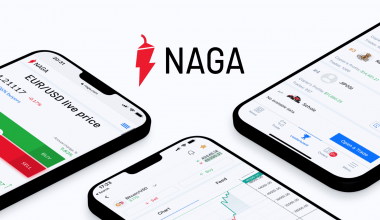There are two widely used execution mechanisms for forex trading: Straight Through Processing (STP) and Electronic Communication Network (ECN). Both types have benefits and shortcomings, but understanding what makes them unique can help you make an informed choice. This article examines the differences between ECN and STP, illuminating their underlying principles, a list of ECNs, advantages, and potential drawbacks.
A True Electronic Communication Network (ECN) is what, exactly?
To match client orders with those from other customers or liquidity providers, a real ECN broker connects client orders to a network. Determining the legitimacy of a broker’s liquidity suppliers is essential, though. The liquidity provider should ideally be a tier 1 bank to be recognized as an authorized ECN broker. Unfortunately, some brokers refrain from disclosing this information, creating doubts about the quality of their ECN offering.
Basics of an ECN Broker:
An ECN broker uses a computerized system to electronically and automatically match customer trading orders. ECN brokers don’t take the opposing side of the deals, in contrast to market-makers. Instead, they make money by adding a fee to each matched trade order. Their set commissions and narrow spreads can identify these brokers. Various liquidity providers supply quotations, or price proposals, to ECN brokers, who then use these quotes to provide their customers with the best spreads. Spreads are calculated in pips and indicate the difference between the purchasing and selling price. Even though ECN brokers often have smaller spreads, it’s crucial to remember that the spread and any associated commissions make up the total cost of trading.
Benefits/Pitfalls of the Electronic Communications Network:
- Elimination of potential conflicts of interest: True ECN brokers have their interests aligned with those of their client’s success by refusing to profit from those clients’ losses.
- Reduced conflicts of interest: ECN brokers reduce conflicts of interest by matching orders and sending them to liquidity providers.
- Cheaper total trading costs: ECN brokers frequently offer competitive pricing, enabling traders to trade cheaply. ECN brokers offer honest, automated, quick trade executions, fostering a transparent trading environment. Transparent and effective transaction execution.
- Possibilities: ECN networks may occasionally provide inverted spreads, allowing traders to benefit from distinctive trading possibilities.
The Electronic Communications Network has various downsides despite its advantages, including the following:
After considering fees, smaller traders may discover that their overall trading expenses are comparable to those provided by market-maker brokers. Spreads may be quite unpredictable on ECN networks, especially during times of low liquidity, as right before big news releases.
- Trade size restrictions: Some ECN brokers have minimum trade sizes, which might be difficult for traders who want to transact in lesser quantities.
- Greater minimum deposits: When compared to market-maker brokers, ECN brokers frequently demand greater minimum deposits.
What is STP?
Brokers in the FX market utilize STP as an execution model. Orders from clients are sent directly to liquidity providers under the STP approach, free of any broker interference or manipulation. The broker serves as a middleman, transferring trades from customers to liquidity providers—which may include banks, financial institutions, and other market participants—by acting as a trade conduit.
An STP broker automatically sends an order to the liquidity provider with the best pricing and execution circumstances when a trader makes an order with the broker.
The broker does not impede the order flow, enabling transparent and effective transaction execution. STP brokers generally markup the spread or tack on a tiny commission to each transaction as payment for their services.
Since no dealing desk is involved, STP brokers are renowned for offering quick and dependable order execution. Comparing brokers that use a market-making strategy, traders can benefit from direct market access, competitive pricing, and possibly narrower spreads.
Differences Between ECN and STP:
ECN and STP models have distinct characteristics and implications for traders. Here are the key differences:
1. Execution model: ECN brokers provide access to raw spreads with fixed commissions, while STP brokers offer commission-free trading with higher markups.
2. Trading costs: Generally, trading costs are lower at ECN brokers, making them more suitable for high-volume traders.
3. Price manipulation: STP brokers can manipulate quotes, whereas ECN brokers connect counterparties without influencing bid and ask prices.
4. Liquidity providers: ECN brokers utilize a broad network of liquidity providers, including banks, prime brokers, and hedge funds, to match buyers and sellers. STP brokers pass on orders directly to liquidity providers.
list of ECNs
Some of the well-known ECN brokers in the industry are FXPrimus, Roboforex, ThinkMarkets, Forex.com, Nord FX, Admiral Markets, PaxForex, AxiTrader, and ForexMart. These brokers have earned the right to be listed on our list of ECNs. These brokers give traders access to real electronic communication networks that link them to various liquidity sources, including banks, prime brokers, hedge funds, and other market players. ECN brokers strive to provide traders with honest, automated, and quick trade execution through their dedication to open order matching. To pick a broker who matches their trading tastes and goals, traders can investigate the characteristics and services of various ECNs.
The Bottom-Line
In conclusion, it is critical to look past labels and examine the real execution rules and practises of each broker when deciding between ECN and STP brokers. Although the words “ECN” and “STP” are frequently used interchangeably and can occasionally be ambiguous, what matters most is the broker’s openness and dedication to fair execution.
It is advised for traders to do extensive research and obtain a clear grasp of a broker’s execution policy rather than merely relying on marketing labels. Traders can compare the specifics and procedures of potential brokers to make educated judgements that are in line with their unique trading requirements. Remember that choosing a broker who prioritises transparency, fair execution, competitive pricing, and complies with regulatory requirements is the key to a good trading experience. Traders may traverse the complicated environment of ECN and STP brokers and choose the one that best meets their trading aims and tastes by giving these considerations precedence over the labels.
Therefore, rather than relying entirely on the label the next time you see the phrases ECN and STP, take a closer look at the list of ECNs and investigate the broker’s execution policy. Make wise decisions based on real-world experiences to create a trading environment that supports your requirements and goals.






